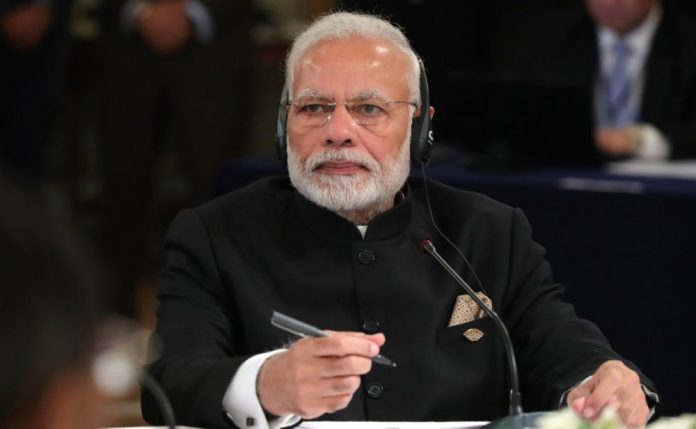India’s unwillingness to engage in peace talks with the Taliban when other regional and global actors are actively dealing with the insurgents in the reconciliation process, makes India isolated in the peace process. Indian foreign policy elites are concerned with possible ramifications of such a move. But this doesn’t mean Indian policymakers have “aversion” to the Taliban. History suggests that New Delhi has maintained ties with the Taliban, though the significance of such a move is widely contested, given the stake and involvement of Pakistan’s secret service agency Inter-Services Intelligence. This article tries to find whether Indian foreign policy elites ever engaged with the Taliban, and tries to argue that, in contrast to popular view, why India’s engagement with the Taliban may be desirable.
Background
New Delhi has always taken Pakistan’s “strategic calculus” into consideration when dealing with Kabul. India wants to maintain “strategic balance” between Afghanistan and Pakistan, while remaining deeply skeptical of the latter’s attempt to shift the balance in its favor, by pursuing the policy of “strategic depth” through proxy warfare involving active support for the terrorist groups like the Taliban. India worries that Pakistan’s pursuit could destabilize the Afghan polity, having potential to radicalize Kashmir, given its geopolitical proximity to Afghanistan.
In the similar fashion, Pakistan is obsessed with India’s involvement in Afghanistan that assumes New Delhi’s presence as a threat to its sovereign existence, given the fact that India supports anti-Pakistani factions in Afghanistan, whose malign intentions of forming a greater Pashtunistan by uniting Pashtun tribes in either side of the non-recognized Durand line, conspicuously insecure Pakistan. Moreover, India’s presence is also viewed as supporting Baluchi separatists in Quetta, who are demanding separation from Pakistan.
In short, Afghanistan is viewed as a zero-sum endeavor by both, each trying to gain something at the expense of the other, which undermines the agency of the Afghan state and prevents long term peace solutions from evolving.
Ties with the Taliban
India’s foreign policy towards Afghanistan changed after the Taliban disintegrated Kabul and captured power in 1996, before that there was debate among Indian policymakers whether to “engage” or “contain” the Taliban.
In 1992, Indian foreign policy towards Afghanistan was directed in accordance with Rao doctrine, which ushered full engagement with Kabul, irrespective of groups attaining power in the center (even open to Taliban). Though the terms of engagement involved only diplomatic relations and lobbying without the use of military support, especially after the failure of using “coercive techniques” in Sri Lanka. The “pro-engagement group” viewed the Taliban as an “ethno-nationalist” force or “student movement”, rather than a terrorist organization. Logically, such a viewpoint suggests New Delhi’s intent of exploiting Pashtun nationalism to trigger the formation of greater Pashtunistan, since the Taliban never recognized the Durand line. But in reality, such thought never materialized.
India’s foreign policy towards Afghanistan during the first few months of the United States “war on terrorism” in 2001, culminated with its active support for Karzai Government, who was appointed as the head of the interim government after the negotiation in Bonn Conference. Even when India supported Karzai’s government, New Delhi has not completely ignored the Taliban. Though not formally, Indian military intelligence officials maintained contacts with the Taliban’s ally Hezb-i-Islami leader Hekmatyar and Taliban’s council Quetta Shura from 2005-2006, and later with some Taliban factions till 2011.
After the fall of Karzai Government in 2014, Ashraf Ghani became the President. The relations of New Delhi with Kabul came under strain due to the latter’s “strategic tilt” towards Pakistan, with the intent of ensuring peace in the region, given the uncertainty over the withdrawal of American troops. But Pakistan’s failure to reciprocate forced the Afghan government to improve its relations with New Delhi, and in the meantime, India supported Ghani’s unilateral decision to engage directly with the Taliban. Following this, New Delhi also unofficially engaged with Taliban leaders in the conference held in Moscow in 2018.
In short, India continued maintaining “informal lines of communication” with the Afghan Taliban, rather than purely negating them vis-a-vis Kabul. But, as always India’s official policy stance dominated the “anti-engagement” view with the Taliban.
Disengagement is “problematic”
Now we will examine why India’s official “anti-engagement” strategy with the Afghan Taliban is problematic. First, the Taliban’s link in fomenting radical Islamization and waging Jihad in Kashmir is not well known, though the Taliban was involved in attacks on the Indian embassy in Kabul and also in kidnapping and extortion of Indians. Moreover, Pakistan’s prominent journalist Ahmed Rashid argues that the Taliban does not have any agenda of waging global Jihad as al-Qaeda or other outfits, as the former only demands its stake in a power-sharing agreement with other factions in Afghanistan. Second, the animosity between the Taliban and India is unknown, except sporadic dislikes for each other, though the case of IC814 hijacking needs due attention. Taliban claims that it acted as “impartial mediators” between the hijackers (HuM) and Indian officials, still, India’s reluctance to engage came as a surprise for the Taliban. Hakim Mujahid, former Taliban envoy to the UN and Akbar Agha, a senior aide to Taliban Chief Mullah Omar, shared their concerns over India’s non engagement. Third, India’s $2 billion aid to Afghanistan since 2001, and its involvement in small developmental projects in Pashtun dominated regions of Southeastern Afghanistan has earned substantial trust and confidence of the civilian population. India should use such an opportunity to engage positively with the Taliban (mainly Pashtuns) who remain skeptical about Pakistan’s “duplicity“, including the latter’s arrest of Taliban second-in-command Mullah Baradar and non-disclosure about the death of Mullah Omar in 2013. Fourth, Indian military intelligence officials’ close contacts with Hekmatyar and Quetta Shura should be used to gain leverage over the Taliban.
India’s “aversion” towards the Taliban is the result of Pakistan’s control over the Taliban, which uses the latter as a “puppet” to pursue its strategic interest. Taliban’s inability to manage without Pakistan and latter’s continued influence over the former decreases the chances of Indian engagement with it. Though historically India has maintained contacts with the Taliban, the untrustworthiness of Pakistan and its “double game”, along with the confidence that India enjoys within the local population are the strong reasons why India’s engagement with the Taliban is preferable. Such engagement could substantially increase Indian stakes in the peace process while remaining sensitive to its strategic interest.
The views and opinions expressed in this article are those of the author.

The author is pursuing his M.A. in Politics and International Studies at the School of International Studies, Jawaharlal Nehru University.


